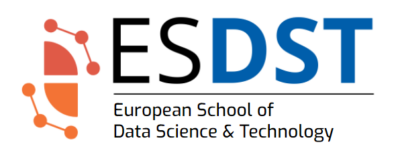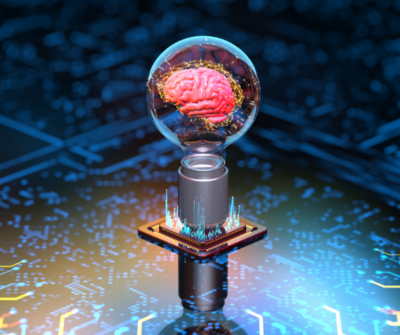Summary – Dive into the Quantum Frontier with ESDST: Unveiling the Fusion of Innovation! Discover the transformative synergy shaping data analysis, from quantum-enhanced machine learning to real-world applications in healthcare, finance, and cybersecurity. Experience the future of data science unfolding!
In the ever-evolving landscape of technology, one field has been making waves and capturing the imagination of scientists and researchers alike: Quantum Machine Learning (QML). Quantum computing and machine learning are two of the most promising areas in contemporary technology, and the fusion of these disciplines holds the potential to revolutionize data analysis in ways we could scarcely have imagined just a few years ago. This transformation is not only a testament to technological growth but also a pivotal moment that promises to redefine how we approach and handle vast datasets.
Understanding Quantum Computing and Data Science
Quantum computing originates from the principles of quantum mechanics, finding its essence in the qubit—a fundamental unit capable of existing simultaneously in multiple states due to the phenomenon of superposition. This unique property empowers quantum computers to parallelly process extensive volumes of information, rendering them exceptionally adept at specific types of computations.
In contrast, Data Science revolves around the extraction of knowledge and insights from data. It involves a diverse set of techniques, spanning data collection, cleaning, analysis, and interpretation. Employing machine learning and statistical methods, Data Science aims to unveil meaningful patterns and predictions within datasets.
The Promised Synergy: Quantum Computing and Data Science Unite
The convergence of quantum computing and data science is not just a theoretical alliance; it represents a transformative promise. Quantum computing’s ability to perform complex calculations at unparalleled speeds opens a gateway to accelerating data science applications, including data analysis and decision-making processes.
This synergy extends beyond conventional boundaries, encompassing quantum-enhanced machine learning algorithms, efficient optimization techniques, and innovative approaches to data clustering and dimensionality reduction. The marriage of these disciplines holds the key to unlocking new frontiers in data science, redefining how we approach, interpret, and extract insights from intricate datasets.
Understanding the synergy between quantum computing and data science is not merely an academic pursuit; it is an exploration of a paradigm shift that has the potential to reshape industries, revolutionize problem-solving, and unlock unprecedented computational capabilities. As we navigate this uncharted territory, the marriage of quantum computing and data science unfolds as a transformative narrative, promising a future where the boundaries of data analysis are pushed to realms once deemed impossible.
Quantum Machine Learning: Fusing Quantum Computing with Traditional Approaches
Quantum machine learning serves as the vital link between quantum computing and conventional machine learning methodologies. It seamlessly integrates the capabilities of quantum computing with the robust algorithms and techniques established in classical machine learning, opening avenues for revolutionary advancements in data analysis. Here are key facets through which QML is poised to transform data analysis:
- Speed and Efficiency
Quantum algorithms bring exponential speed enhancements compared to its classical counterparts. Tasks such as searching vast databases or factoring large numbers, which could previously demand centuries on classical computers, can now be accomplished in mere minutes or seconds with quantum computing. For data analysts, this equates to unparalleled speed and efficiency in processing and analyzing data on a massive scale.
- Simulating Quantum Systems
Quantum computers demonstrate unparalleled prowess in simulating quantum systems—a formidable challenge for classical counterparts. This capability holds immense value in fields like materials science, drug discovery, and chemistry, where understanding the intricacies of quantum systems is paramount. QML empowers data analysts to model and analyze complex quantum phenomena with precision and expediency.
- Quantum-Enhanced Machine Learning Algorithms
In the realm of quantum machine learning, researchers are crafting algorithms explicitly tailored to leverage the capabilities of quantum computers. These algorithms excel in solving optimization problems, conducting data clustering, and making predictions with heightened precision and efficiency. Quantum machine learning models unravel concealed patterns within data, leading to more accurate insights and predictions.
- Enhanced Security
The intersection of quantum machine learning and data security carries profound implications. While quantum computing has the potential to breach widely-used encryption methods, it simultaneously enables the development of quantum-resistant encryption techniques. This ensures the security of sensitive data, even in a landscape where quantum computers are prevalent, fostering a robust defense against potential threats.
Real-world Applications of Quantum Machine Learning
The realm of quantum machine learning (QML) presents a multitude of potential applications, spanning various domains and pushing the boundaries of what was once deemed possible:
Healthcare
In the realm of healthcare, QML emerges as a powerful tool in drug discovery. Its capability to swiftly analyze vast chemical spaces accelerates the identification of new drug candidates. Furthermore, QML plays a pivotal role in optimizing treatment plans by analyzing patient data, tailoring therapies to individual patients, and ushering in a new era of personalized medicine.
Finance
Quantum algorithms in finance revolutionize traditional practices. QML optimizes investment portfolios, predicts market trends, and swiftly detects anomalies in financial data, thereby reshaping the landscape of high-frequency trading and risk management. The unparalleled speed and accuracy of quantum algorithms provide a transformative edge in navigating the complexities of the financial world.
Climate Modeling
Climate scientists harness the power of QML to simulate complex climate systems with unparalleled accuracy. This application aids in climate prediction, resource management, and policy decisions, offering an innovative approach to addressing the challenges posed by climate change.
Artificial Intelligence
The marriage of quantum computing and machine learning propels artificial intelligence to new heights. QML enhances artificial intelligence models by expediting the training of deep neural networks. This acceleration leads to breakthroughs in natural language processing, computer vision, and the development of more efficient autonomous systems.
Cybersecurity
In the ever-evolving landscape of cybersecurity, QML stands as a beacon of innovation. Quantum-resistant encryption techniques play a crucial role in safeguarding sensitive data from the looming threat of quantum attacks. This application ensures the security of online communications and transactions, providing a robust defense against emerging challenges in the digital real.
Challenges and considerations
While the potential of quantum computing in data science is promising, hurdles persist. Current quantum computing technologies are in early stages, characterized by infancy, errors, and the need for advanced error correction. Integrating classical and quantum computing introduces technical challenges, with ethical considerations casting a shadow over the profound implications of quantum-enhanced data analysis. Despite these challenges, the pursuit of realizing quantum computing’s potential in data science continues. Ethically, responsible research and development are imperative to ensure quantum capabilities benefit humanity. Security concerns accompany ethical considerations, urging the proactive development of quantum-safe cryptography to safeguard sensitive data. Addressing these challenges head-on will navigate the quantum frontier, preserving data integrity and ensuring a secure digital landscape.
Future Possibilities in Quantum Computing:
As we gaze into the future of quantum computing, the possibilities are both awe-inspiring and boundless. The advent of technologies and advancements in quantum communication signifies a trajectory towards large-scale, distributed quantum computing. The evolution from “noisy” quantum computing to refined error-correction techniques brings us closer to realizing the true potential of quantum machines. Moreover, the shifting focus towards quantum software opens new avenues for flexible computation routines, hinting at a future where quantum computers seamlessly integrate with classical algorithms. The global competition and policy shifts also underscore the importance of navigating a balanced and equitable landscape, ensuring that the quantum revolution benefits humanity as a whole.
Closing Thoughts: Embracing the Quantum Revolution
In closing, the quantum revolution of 2023 heralds a new era where theoretical concepts are translating into tangible advancements. The synergies between modular quantum computing, robust error correction, efficient quantum communication, and evolving quantum software are reshaping our understanding of computation. As diverse nations actively participate in this quantum race, the year unfolds as a testament to collective progress. Embracing responsible research and development, ethical considerations, and a global collaborative spirit will be crucial in navigating the uncharted territories of quantum possibilities. The journey ahead promises not only technological marvels but a profound transformation in how we perceive and harness the power of information.
ESDST is proud to present an exclusive opportunity for aspiring professionals with a passion for data science and machine learning. Our MBA program is meticulously designed to equip individuals with the strategic skills and technical acumen needed to thrive in the dynamic landscape of data-driven decision-making. Through a comprehensive curriculum, industry-focused projects, and expert mentorship, ESDST’s MBA in Data Science and Machine Learning offers a transformative educational experience.

